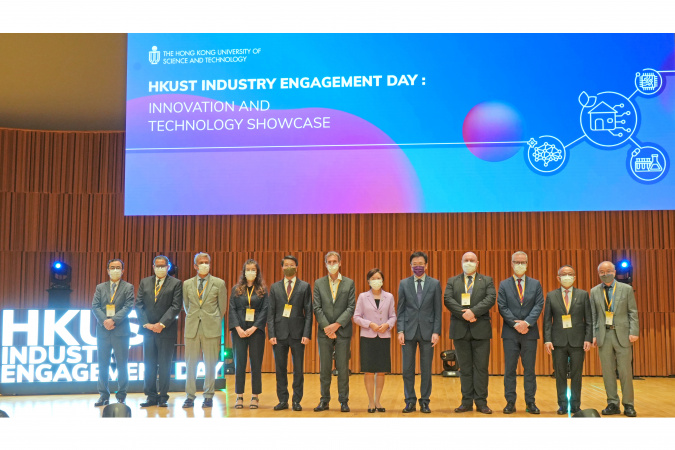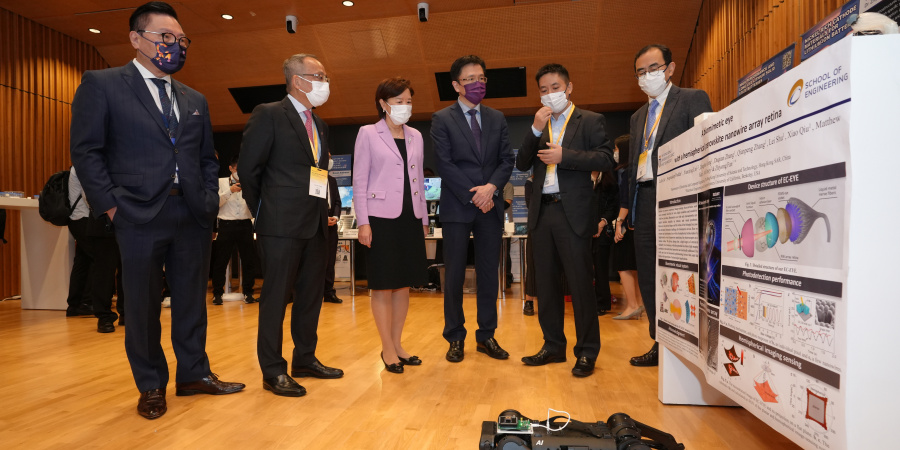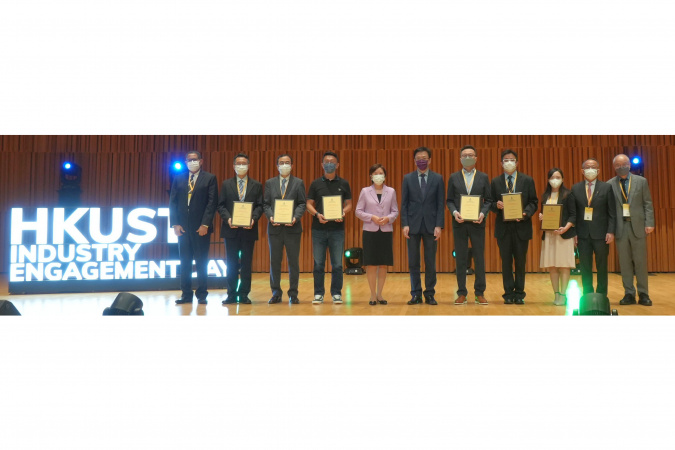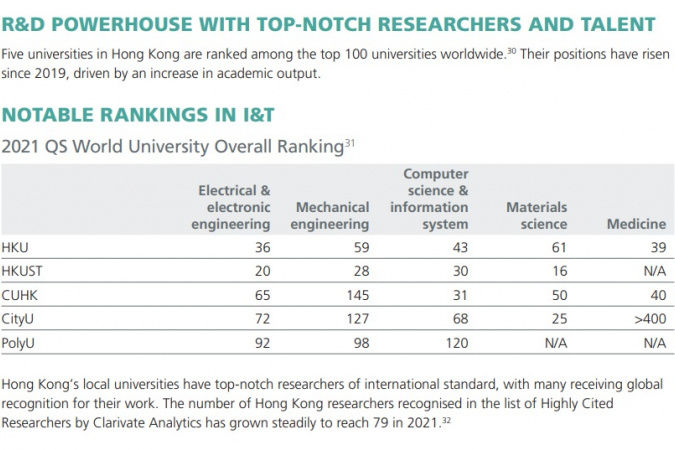HKUST Showcases Innovations and Venture Collaboration at Industry Engagement Day
Hundreds of industry players, potential investors, academics, government officials and entrepreneurs explored collaboration opportunities with researchers of the Hong Kong University of Science and Technology (HKUST) at its Industry Engagement Day (IED) today, as the University showcased 31 inventions spanning four strategic research areas.
Prof. SUN Dong, Secretary for Innovation, Technology and Industry of the Hong Kong Special Administrative Region (HKSAR) Government, as well as executives from I&T heavyweights WeBank, Guangdong Bright Dream Robotics, Chiaphua Industries, and Huawei Technologies, shared their insights in the event’s symposium in the morning session on how to drive Hong Kong’s innovation agenda through University-industry collaboration. Representatives of the European Union and Consul Generals from multiple countries including Sweden, Egypt and Vietnam, as well as executives from different business chambers, industrial, academic and technology sectors, also joined to look for opportunities.
Prof. Sun Dong said, “Government, industry, academic and research sectors are all playing a unique role in Hong Kong’s I&T development. Through our joint efforts in the past, the I&T ecosystem in Hong Kong has become increasingly vibrant. To sustain this good momentum, cross-sector collaboration is the key. I am particularly pleased to see HKUST is not only leading in the aspect of technology research, but also dedicated to sharing knowledge and experiences with different sectors in the community, and building a strong connection with the industries.”
HKUST President Prof. Nancy IP said at the IED, “Science and innovation are primary tractors of growth for advancement of Hong Kong and our nation. As a pioneer in science and research in Hong Kong, HKUST can take a leading role in helping the city to establish an enhanced I&T ecosystem, just like the case of Stanford University for Silicon Valley in the San Francisco Bay Area. With our strong research capabilities and network with local, regional and international governments and industry players, we shall help fill the gap by building a robust ecosystem from basic research to impact through co-development and partnership with the government and industry.”
As a research-focused university, HKUST has accumulated over 30 years of strength in deep technologies – spanning health technology, AI, robotics, big data, fintech and renewable energy – areas of I&T focus in the Policy Address announced last month. Backed by an entrepreneurial culture and a strong network consisting of over 600 local, regional and international industrial and governmental partners, as of 2022, HKUST has incubated over 1,600 active start-up companies – including nine unicorns and seven Initial Public Offering (IPO) companies, creating an economic impact of over HK$400 billion.
Prof. Tim CHENG Kwang-Ting, HKUST Vice-President for Research and Development, said the University would help bridge the industry’s “absorptive capacity gap” in order to enhance the city’s I&T ecosystem. “Absorptive capacity is the ability to recognize and assimilate the value of new idea, technology or information, and how companies could apply them to commercial ends. We as a university will seek to advance the readiness of our research and technology, while at the same time engage our industry partners at an early stage in order to minimize the barriers and shorten the journey of tech transfer,” he said.
Apart from the usual research collaboration projects, establishment of joint labs and multi-party consortium – such as HKUST’s InnoHK labs on AI chip and neurodegenerative diseases established in the Hong Kong Science Park, which brought together researchers and tech industry players from around the world; HKUST is also launching different funds, hosting investor-matching events, relaxing patent and licensing criteria for industry partners and stakeholders, to facilitate knowledge transfer.
(This news was originally published by the HKUST Public Affairs Office here.)




